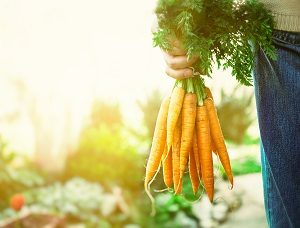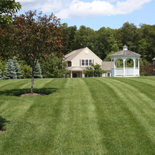 Starting a garden is a fun and easy way to save money and grow fresh produce. As easy as they can be, there are many actions that can be taken to ensure you are getting the most out of your homegrown produce. Landscaping is an important aspect in making your yard look beautiful, but it can also dictate the success of your garden. If you’re looking to provide more homegrown produce for your family and friends, learn how partnering with a landscaper can help.
Starting a garden is a fun and easy way to save money and grow fresh produce. As easy as they can be, there are many actions that can be taken to ensure you are getting the most out of your homegrown produce. Landscaping is an important aspect in making your yard look beautiful, but it can also dictate the success of your garden. If you’re looking to provide more homegrown produce for your family and friends, learn how partnering with a landscaper can help.
How Much Produce Do I Plant?
Many people who are starting a garden for the first time may unintentionally plant more produce than is going be used. So, before planting anything, think about what it is going to be used for and how much you typically need. You should also consider which plants will grow continuously throughout the season and which will only produce once. Vegetables such as tomatoes, peppers, and squash can continuously grow; while plants like carrots, corn, and radishes will only produce crops once.
Proper Irrigation for Your Produce
Proper irrigation can assist in managing larger crops and producing better results. Drip systems and sprinkler systems can immense potential to increase the success of your garden. Drip systems are a low-pressure water system providing water to your plants through dripping, spraying and streams. It uses less water than other techniques and keeps the roots of the plants moist. Sprinkler systems allow water to reach your plants by releasing water out of the sprinkler head where it can land on the plant, reaching all parts on the plant and its roots. Both are great choices to benefit your produce. Want to learn more about your installation options? Check out our irrigation page.
Where Do I Plant My Produce?
When beginning to grow your homegrown produce, you must take into consideration where the garden will be set up. Ideally, there are three main things you should make sure your garden has access to:
- Full Sun: Many produce crops require at least six to eight hours of direct sunlight. Without this amount of sunlight, they will not grow as well and be more likely to suffer from disease and insects.
- Plenty of Water: If you’re region goes a period without rain, or is in a drought, you will need to consistently water all the crops.
- Good Soil: All plants are planted in soil. To ensure they grow to their full potential, it is best to use moist soil that is rich in organic matter.
Raised Gardens and Retaining Walls
Proper garden beds and retaining walls help the garden avoid pests and providing proper drainage. Raised gardens beds allow you a more efficient drainage system while keeps the weeds and pests contained and out of your garden. Raised beds can also extend the growing season for your crops. Retaining walls keep soil in place, while also reducing maintenance and erosion. Retaining walls are functional and create an aesthetic appeal for your home. Learn more about how a hardscaping installation service can help make room for your vegetable farm.
Take your homegrown produce to the next level and let Greener Horizon help. To learn more about how to get the most out of your produce, contact our experts at Greener Horizon. We can help you design the perfect landscape to meet your farming needs while also remaining a beautiful place to relax and have guests.






